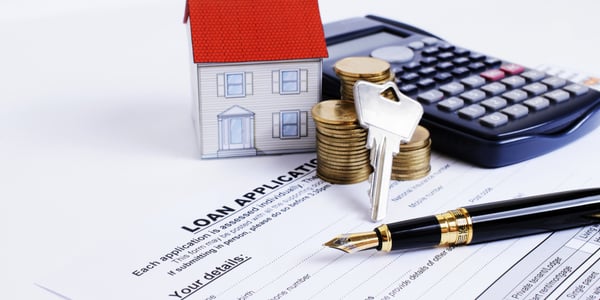Important Things to Consider Before Apply for A Home Loan

Are you planning to construct a new home, or maybe you want to renovate your existing home? Purchasing a home is one of the most crucial decisions people make, hence why many prefer to take a loan. Home construction loans are ideal for those who want to build or renovate their dream homes without breaking the bank. With these types of loans, you’ll be able to secure your perfect abode without having money worries!
Before you make such an investment, you should consider some factors first. It is essential to comprehend the process and the costs associated with a home loan to find the most advantageous option for your specific requirements. Ultimately, it would be best to strive to ensure that your long-term housing goals are fulfilled by obtaining the best possible loan solution.
Taking a loan may seem easy, but several factors must be considered before securing one. Thankfully, banks have established various payment plans and repayment options, simplifying the process. However, before applying for a home construction loan or a house renovation loan, you need to consider the following factors:
- Know Your Budget
Before you take the plunge and purchase a home, outline a budget that includes your potential down payment amount and the amount of the home construction loan you’ll need. Generally speaking, if your income meets the criteria, lenders will finance up to 80% of the property’s value. Devise the EMI range you are comfortable with to help determine the tenure of the loan. Online EMI calculators make this convenient by providing various options! If it turns out that your income isn’t adequate on its own, consider enlisting another party, such as one or both of your parents or even a spouse, as co-borrowers!
- Tenure of The Loan
Home loans can be tailored to fit your needs. Home construction loan lenders offer loan tenure options of up to 30 years. While this might relieve you of the burden of hefty monthly repayments, it results in a higher total interest outgo. On the other hand, opting for a short-term loan may cause an influx of huge EMIs. As a result, you must select the proper repayment duration to manage your payments while saving money on interest costs adequately. If your property is in the process of being constructed, you can apply for a loan that will be sanctioned in stages based on the payment schedule. This type of loan requires only pre-EMI interest payments until the construction process is completed.
- Loan Processing Fee
Applying for a loan can come with processing fees, which depend heavily on the amount borrowed. Usually, the processing fee is fixed based on the loan amount. However, some lenders won’t give this a thought and offer flat rates. Small percentage discrepancies can greatly affect your budget if you apply for a huge home construction loan. So, compare different lenders’ rates and save yourself from extra expenses.
- Charges for Pre-Payment
Due to the financial implications, many people feel emotionally charged when buying a home. Because of this, they often want to reduce their debt burden as soon as possible by making pre-payments towards the principal amount or even paying off the entire loan amount before its completion date. If you make partial payments whenever possible, you can save money on interest. Most banks and housing finance companies don’t charge pre-payment or foreclosure fees after a certain period or when a specified percentage of the loan has been paid off.
Taking advantage of this opportunity is an easy way to reduce your burden. When selecting a lender for your loan, you must be aware of their pre-payment charges and restrictions. Some lenders charge fees according to the amount involved and the number of times you make pre-payments. To ensure no surprises arise later, select a lender who provides zero to minimize costs associated with making pre-payments. This is how you can manage repayments efficiently without incurring any additional expenses.
- Loan Down Payment
Let’s say you want to apply for a loan of Rs. 50, but the bank can only approve up to Rs.30 based on your eligibility. In such a case, you must cover the deficit with your own funds. This payment is called a down payment. Make a large upfront down payment without breaking your budget since this will help you lower the amount that needs to be borrowed from the lender. Significantly reduce your interest rate by paying a down payment of at least 10%-20% of the loan. Many banks offer up to 100% of the property value as loans, depending upon individual eligibility. However, this will cause you to incur substantial interest if it is not managed well.
Conclusion
Understanding the ins and outs of a house renovation loan is essential to ensure you make the right decisions. By taking into account all these factors when applying for a Home Loan, you can effectively save your hard-earned money and reduce your debt burden at no extra cost! After selecting the perfect lender, read through their terms of service to be aware of the hidden costs and charges associated with the loan.






